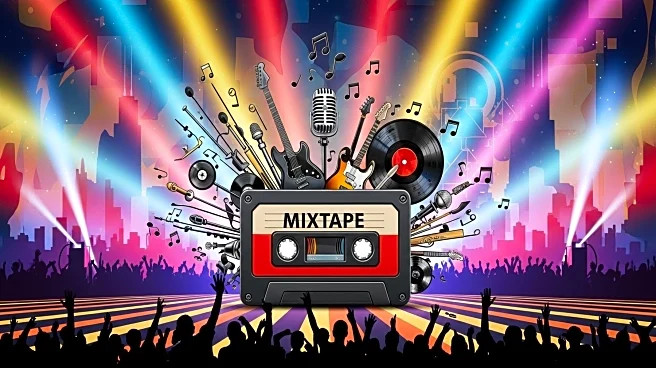What's Happening?
Riot Fest 2025 took place at Douglass Park in Chicago from September 19 to 21, marking its 20th anniversary. The festival featured a lineup that leaned heavily into emo and metalcore genres, along with a significant dose of nostalgia. Since 2017, Chicago has been the sole location for Riot Fest, as organizers ceased holding the event in other cities. The festival's anniversary was celebrated with performances that highlighted the city's musical heritage and its importance as a cultural hub.
Why It's Important?
Riot Fest's 20th anniversary underscores its role in the music festival circuit, particularly in Chicago, where it has become a staple event. The focus on emo and metalcore reflects ongoing trends in music consumption, appealing to both long-time fans and newer audiences. The festival's continued presence in Chicago highlights the city's significance in the music industry, potentially boosting local tourism and economy. It also serves as a platform for artists to connect with fans and gain exposure, contributing to the cultural vibrancy of the area.
What's Next?
As Riot Fest continues to evolve, future iterations may expand their musical offerings or explore new themes to attract diverse audiences. Organizers might consider reintroducing the festival to other cities, depending on logistical and market conditions. The success of the 20th anniversary could lead to increased sponsorship and partnerships, enhancing the festival's reach and impact. Stakeholders, including local businesses and city officials, may explore ways to further integrate the festival into Chicago's cultural calendar.
Beyond the Headlines
Riot Fest's emphasis on nostalgia and specific music genres may influence broader cultural trends, encouraging other festivals to adopt similar themes. The festival's impact on local communities, including potential noise and environmental concerns, could prompt discussions on sustainable event planning. Additionally, the festival's role in promoting lesser-known bands and genres may contribute to shifts in music industry dynamics, affecting how artists and labels approach marketing and audience engagement.








